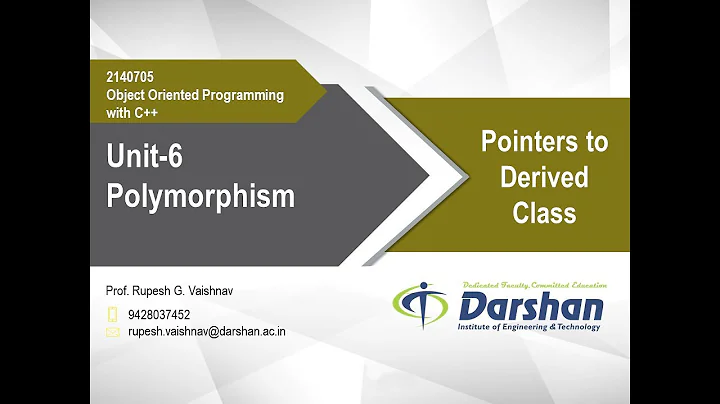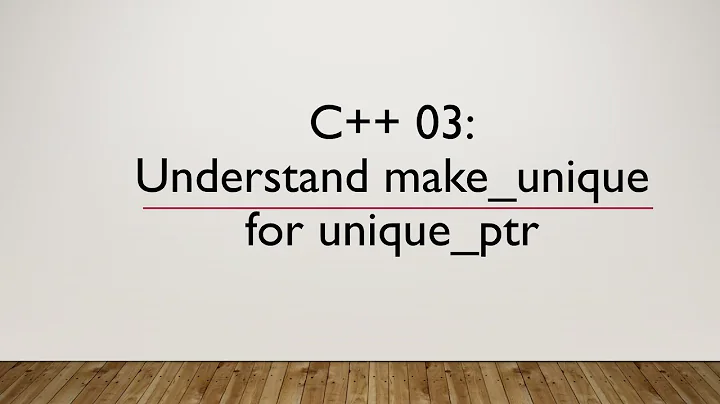std::unique_ptr with derived class
38,639
If they are polymorphic types and you only need a pointer to the derived type use dynamic_cast:
Derived *derivedPointer = dynamic_cast<Derived*>(basePointer.get());
If they are not polymorphic types only need a pointer to the derived type use static_cast and hope for the best:
Derived *derivedPointer = static_cast<Derived*>(basePointer.get());
If you need to convert a unique_ptr containing a polymorphic type:
Derived *tmp = dynamic_cast<Derived*>(basePointer.get());
std::unique_ptr<Derived> derivedPointer;
if(tmp != nullptr)
{
basePointer.release();
derivedPointer.reset(tmp);
}
If you need to convert unique_ptr containing a non-polymorphic type:
std::unique_ptr<Derived>
derivedPointer(static_cast<Derived*>(basePointer.release()));
Related videos on Youtube
Author by
Lukas Schmit
Updated on July 04, 2020Comments
-
 Lukas Schmit almost 4 years
Lukas Schmit almost 4 yearsI have a question about the c++11 pointers. Specifically, how do you turn a unique pointer for the base class into the derived class?
class Base { public: int foo; } class Derived : public Base { public: int bar; } ... std::unique_ptr<Base> basePointer(new Derived); // now, how do I access the bar member?it should be possible, but I can't figure out how. Every time I try using the
basePointer.get()I end up with the executable crashing.
Thanks in advance, any advice would be appreciated.
-
jogojapan almost 11 yearsCould you show a complete (but minimal) example of the code that causes your process to crash?
basePointer.get()alone certainly isn't a problem. -
 Lukas Schmit almost 11 years@jogojapan I fixed my problem. I was doing some really weird casting with at least 5 sets of parenthesis. I'm pretty sure it was just something stupid, but I already changed it and don't remember what I did. Captain Obvlious' answer worked for me though. Thanks for all your help!
Lukas Schmit almost 11 years@jogojapan I fixed my problem. I was doing some really weird casting with at least 5 sets of parenthesis. I'm pretty sure it was just something stupid, but I already changed it and don't remember what I did. Captain Obvlious' answer worked for me though. Thanks for all your help!
-
-
Marc over 7 yearsAre you sure there's no memory leak when you do basePointer.release()?
-
Captain Obvlious over 7 years@Marc Yes, I'm sure.
-
meneldal over 6 years@Marc The reason it is safe is because both
release()andreset()arenoexcept, so unless you are doing something very bad outside this function, the raw pointer will always end up in the derived pointer and will be correctly destroyed. -
Masadow over 5 yearsIt might be obvious for some but please note that you are stealing the resource from the
basePointerwhich is not always what you want in your unique_ptr conversion -
Daniel McLaury over 4 years@Masadow: If it's not what you want, then you don't want a unique pointer.
-
 Charles Gueunet over 3 yearscan't we just use a std::move instead of cast + release ?
Charles Gueunet over 3 yearscan't we just use a std::move instead of cast + release ? -
Johan Boulé over 3 yearsProblem with the answer. Yes, static_cast does also support polymorphic types. You should only use dynamic_cast when you're unsure whether the cast will work or fail (and in this case, test whether it returned null as you did).








